Have We Reached Peak Entitlements?
There is no way an economy that grows by 75% every 25 years can fund entitlement programs expanding by 500% or more over the same time period.
One aspect of Peak Government is Peak Entitlements: the ability of the government to fund its social program promises out of current tax revenues. Recall that Federal entitlement programs--Social Security, Medicare and Medicaid, to mention the largest--are all "pay as you go," meaning they are funded out of current tax revenues.
The Social Security and Medicare "trust funds" are politically useful illusions: as the securities within the so-called trust funds are non-marketable, the government funds shortfalls in these programs the same way it funds all its other deficit spending, by selling Treasury bonds.
As the charts in Have We Reached Peak Government? show, government spending has soared to levels that no longer reflect the growth of the real economy.Government spending has risen by 300% or more since 1990, while the economy has grown by 75% in that time.
GDP:
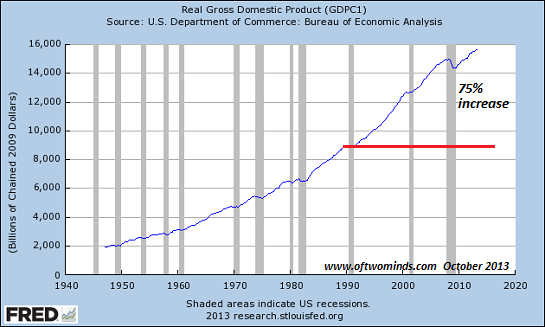
Federal spending:
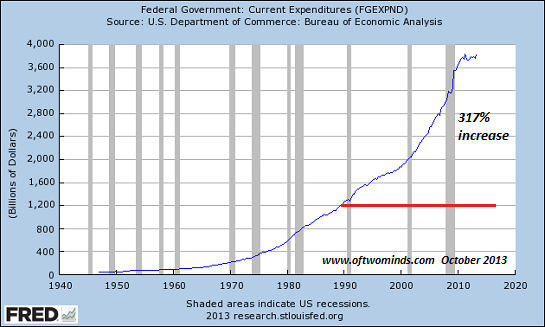
Let's zero in on entitlement program spending. Personal Current Transfer Receipts (PCTR) include all transfer payments to individuals, a category that includes all social welfare programs such as Social Security, Medicare and Medicaid.
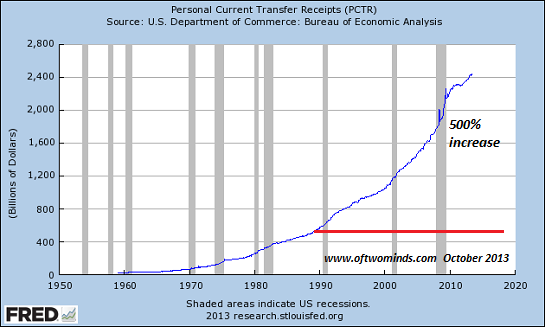
Social Security:
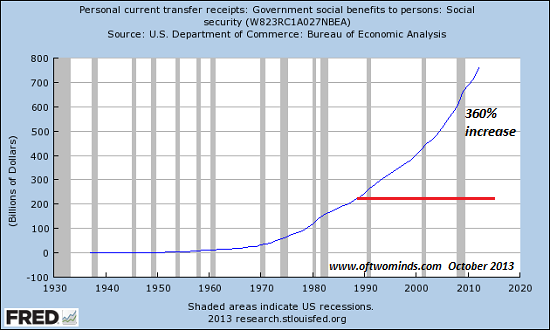
Medicaid:
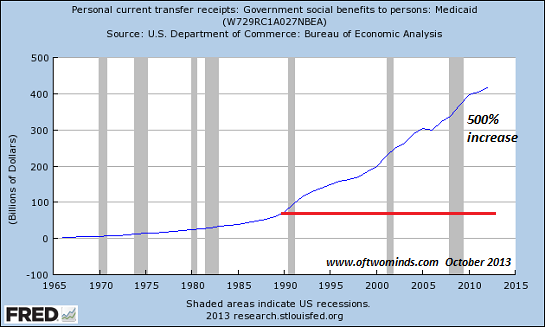
Medicare:
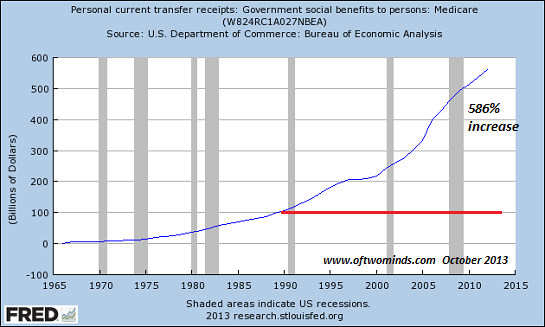
Since Social Security and Medicare are funded by payroll taxes (15.3% of all earnings paid by employers and employees, up to $113,700, and another .9% on earned income above $200,000 annually) and the majority of individual income taxes are also derived from earned income, the key metrics behind entitlement tax revenues are full-time employment and productivity: the number of people who are paying substantial payroll taxes and the productivity of the economy, i.e. the ability of the economy to support more workers and higher wages.
Full-time employment and the number of Social Security beneficiaries:
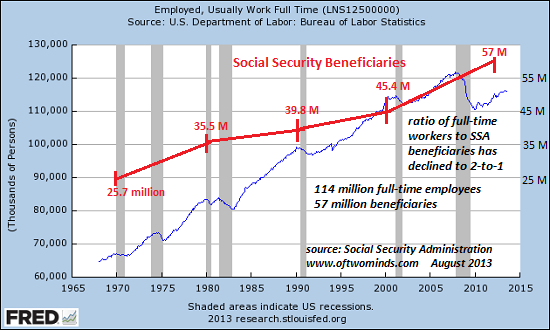
Output per person:
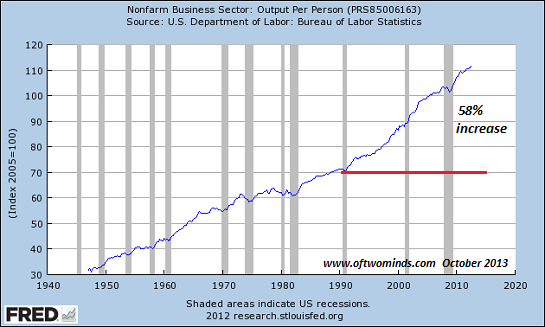
Clearly, full-time employment is stagnating while the number of entitlement beneficiaries is climbing steadily as the baby Boomers retire en masse. At the same time productivity since 1990 has advanced 58%, a pace that cannot support program costs rising by 500% over the same time frame.
If we are not yet at Peak Entitlements, we are getting close. Short of the Federal Reserve printing $1 trillion a year and distributing it to entitlement beneficiaries directly (with all the unintended consequences of such blatant money-printing), there is no way an economy with stagnant employment and modest productivity growth (roughly 60% in 25 years) can fund entitlement programs expanding by 500% or more over the same time period.
Posts and email responses will be sporadic in October due to family commitments. Thank you for your understanding.
The Nearly Free University and The Emerging Economy:
The Revolution in Higher Education
Reconnecting higher education, livelihoods and the economy
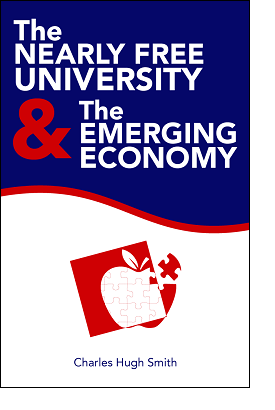
We must thoroughly understand the twin revolutions now fundamentally changing our world: The true cost of higher education and an economy that seems to re-shape itself minute to minute.
Things are falling apart--that is obvious. But why are they falling apart? The reasons are complex and global. Our economy and society have structural problems that cannot be solved by adding debt to debt. We are becoming poorer, not just from financial over-reach, but from fundamental forces that are not easy to identify. We will cover the five core reasons why things are falling apart:
 1. Debt and financialization
1. Debt and financialization2. Crony capitalism
3. Diminishing returns
4. Centralization
5. Technological, financial and demographic changes in our economy
Complex systems weakened by diminishing returns collapse under their own weight and are replaced by systems that are simpler, faster and affordable. If we cling to the old ways, our system will disintegrate. If we want sustainable prosperity rather than collapse, we must embrace a new model that is Decentralized, Adaptive, Transparent and Accountable (DATA).
We are not powerless. Once we accept responsibility, we become powerful.
Kindle: $9.95 print: $24
| Thank you, John H. ($5/month), for your monumentally generous subscription to this site-- I am greatly honored by your support and readership. |



























